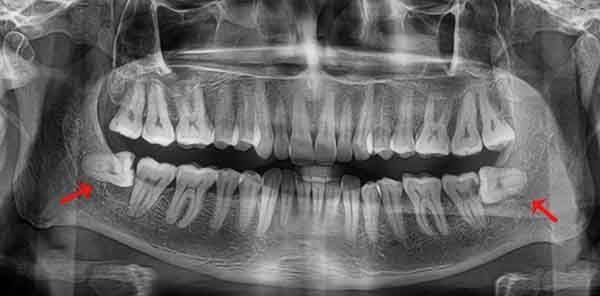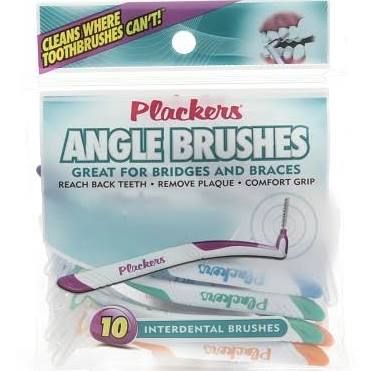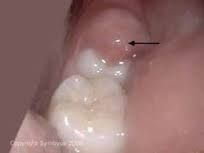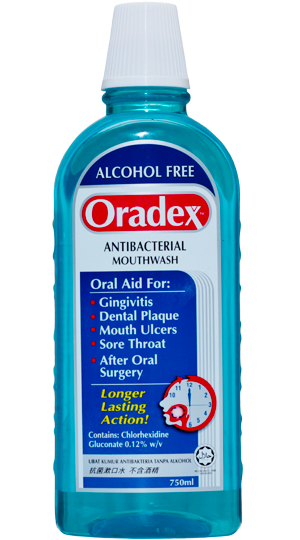QUOTE(babychai @ Sep 13 2014, 12:28 AM)
Dear Doctor,
I never drink coffee and didn't smoke but my teeth naturally got black stain. I go to dentist almost every 6 months to wash my mouth and try different dentist but the black stain will come back again around in 3 months time. All doctor also do not know why how come I got black stain. Some say it is cause by my saliva.
May I know do you have long term solution for this?
Thanks.
Hi, first of all I would like to tell that there are staining of teeth is basically multifactorial. The causes of staining are divided into extrinsic and intrinsic stains. Intrinsic stains are usually caused by some diseases like blood diseases, inherited diseases while extrinsic stains are more common among the community. For your case, the reason of staining might NOT ONLY be coffee. It may be due to other food stains like tea, wine, curry, soft drink etc. Furthermore, some people are prone to stains naturally due to chromogenic bacteria. Well, basically these bacteria will only be present due to plaque accumulation. So you have to maintain your oral health by brushing your teeth twice a day and flossing daily. Also, I would suggest you to rinse your mouth after every meal. I never drink coffee and didn't smoke but my teeth naturally got black stain. I go to dentist almost every 6 months to wash my mouth and try different dentist but the black stain will come back again around in 3 months time. All doctor also do not know why how come I got black stain. Some say it is cause by my saliva.
May I know do you have long term solution for this?
Thanks.
How to reduce teeth staining:
1. Rinse your mouth after every meal
2. Use a straw to drink
3. Chewing gums are good sometimes but beware of the sugar contents
4. Brush your teeth twice daily with fluoridated toothpaste
5. Regular visit to your dentist (at least in 6 months interval)
For the treatment wise, there are plenty of ways to treat tooth staining.
1. Polishing of teeth (I suppose your dentist would have done it for you)
2. Bleaching gels (Effective but need long term follow up as well)
3. Fixing a porcelain veneer or crown (Porcelain is the best material as it does not stain BUT we need to excessively remove the tooth structure to fix the restoration and it is very costly)
Discuss with your dentist about your problems and he will evaluate your conditions and provide a suitable treatment for you.
QUOTE(jazzkobis @ Sep 13 2014, 08:56 AM)
AskTheDent
Hi, first of all, good idea for making this thread! i'll be reading it from time to time
i have a question, i am now wearing braces from private orthodontist, I feel like going for scaling but it's kinda pricey to do it at a private clinic (like around RM800), therefore is it possible to do scaling & whitening with braces on at a gov dentistry?
Hi, it is advisable to do scaling during your orthodontic treatment. And for whitening, i would advice you to do it after you completed your treatment, this is because ( I assume you wearing the metal braces) if you do whitening, the teeth surface below the bracket will not expose to the the whitening treatment. Hi, first of all, good idea for making this thread! i'll be reading it from time to time
i have a question, i am now wearing braces from private orthodontist, I feel like going for scaling but it's kinda pricey to do it at a private clinic (like around RM800), therefore is it possible to do scaling & whitening with braces on at a gov dentistry?
Gov clinic only have scaling for Rm2, but whitening have to go to private clinic
QUOTE(5p3ak @ Sep 13 2014, 09:56 AM)
Hi AskTheDent,
What does it mean when your gums bleed when you brush but you don't feel anything?
Thanks.
Hi, bleeding gums is a very common problem and even though there is no pain, it does not mean you should stop treating it!What does it mean when your gums bleed when you brush but you don't feel anything?
Thanks.
Let me explain what is 'bleeding gums'. It is a sign of inflammation (A response from our body to protect us from infection or harmful stimulus) in your mouth. It is usually due to gum diseases which initiate from the bacteria in the plaque. Our body's defence tries to 'fight' with the bacteria and in the early stage, you will see just redness and probably mild swelling of your gums. If the plaque is not removed (by brushing/ scaling), the bacteria accumulates and infection becomes persistent, now the pain may gradually get worse. If it is still not resolved, the pain might be severe and simultaneously, you will have serious infection of your gums.
So, please do not ignore any sign that your body is telling. Visit a dentist as early as possible once you encounter any problems regarding oral health.


 Sep 13 2014, 02:06 PM
Sep 13 2014, 02:06 PM

 Quote
Quote




 0.0513sec
0.0513sec
 0.97
0.97
 7 queries
7 queries
 GZIP Disabled
GZIP Disabled